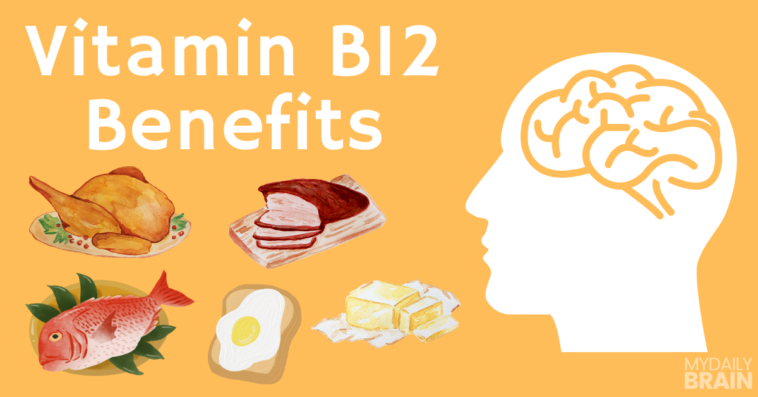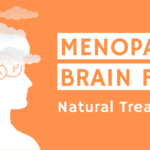One of the eight essential B vitamins is vitamin B12. While it’s beneficial for overall health, it also has a big part in maintaining the brain and nervous system functions. In this article, you will learn about the vitamin B12 benefits for your brain and how you can obtain it.
The Importance of Vitamin B12
Aside from keeping the brain and nerves working, vitamin B12 (also known as cobalamin) also supports bone health, red cell formation, energy levels, and mood. However, unlike a few other vitamins, this one is something that our bodies cannot produce.
Vitamin B12 is naturally present in animal products including fish, meat, poultry, eggs, and dairy. It is also available as an oral supplement or injection that a doctor may prescribe for a patient with a deficiency. Women who are pregnant and breastfeeding may require a higher amount to prevent possible birth defects and support the infant’s brain development.
Understanding Vitamin B12 Deficiency
Since your body does not produce vitamin B12, it is important to maintain a normal level with the aid of a balanced diet. However, some people have problems absorbing it despite consuming foods that are rich in it.
Malabsorption is when your body has difficulty digesting or absorbing nutrients from food. This happens due to various reasons including old age. According to research, more than 20% of older adults have a vitamin B12 deficiency due to malabsorption. Hence, it is recommended that they supplement the needed nutrients in other forms like oral pills or shots.[1]Park, S., & Johnson, M. A. (2006). What is an adequate dose of oral vitamin B12 in older people with poor vitamin B12 status?. Nutrition reviews, 64(8), 373–378. https://doi.org/10.1111/j.1753-4887.2006.tb00222.x
Who are at risk of having vitamin B12 deficiency?
Aside from elderlies, other people can also develop this deficiency. This condition can be determined through a blood test that checks your vitamin B12 levels. People who are likely to have vitamin B12 deficiency are identified below:
Vegetarians and vegans
As previously mentioned, vitamin B12 is naturally sourced from animal products. People who follow a vegetarian diet mainly consume plants for food but include eggs and dairy. A vegan diet on the other hand is similar but excludes all meat and animal products.
These diets may cause them not to get enough of the required level of vitamin B12. In this case, they can modify their diet to include fortified foods as well as take supplements.
People taking certain medications
Those who have stomach acid and heartburn issues may take medicines that interfere with the absorption of vitamin B12. Examples are the proton-pump inhibitors (PPI) such as esomeprazole (Nexium), omeprazole (Prilosec), lansoprazole (Prevacid) and pantoprazole (Prontonix), among others.
Other medications such as metformin (Glucophage) that is used to treat diabetes can also reduce vitamin B12 levels in patients.
Heavy drinkers
Drinking too much alcohol makes it difficult for the body to absorb the needed nutrients like vitamin B12. Additionally, this may even deplete bodily stores and thus inhibits the usage of the nutrients that are already in the body.
Other people who are at risk of vitamin B12 deficiency include those who have chronic digestive disorders such as Chron’s, celiac disease, or irritable bowel syndrome. You can also be at risk if you have an eating disorder, had weight loss surgery, or had another operation that removed part of your stomach. People who are HIV-positive and have immune system disorders such as Graves’ disease or lupus may also be deficient in vitamin B12.
Food Sources of Vitamin B12
According to the Office of Dietary Supplements (ODS), the two best sources of vitamin B12 are beef liver and clams. Other food sources are as follows:
- Bluefin tuna
- Fortified natural yeast
- Salmon
- Ground beef
- Milk
- Plain, fat-free yogurt
- Fortified breakfast cereals
- Cheddar cheese
- Egg
- Turkey
These vitamin B12-rich foods can help with maintaining healthy nerve tissue, brain function, and the production of red blood cells, among others.
The Benefits Of Vitamin B12 For Your Brain
Collectively, the B vitamins all play an essential role in the optimal physiological and neurological functions in our body. But a study found that many people still suffer from a deficiency in this vitamin group. Experts advise taking the recommended amount of B vitamins by following a well-balanced diet to help preserve brain health.[2]Kennedy D. O. (2016). B Vitamins and the Brain: Mechanisms, Dose and Efficacy–A Review. Nutrients, 8(2), 68. https://doi.org/10.3390/nu8020068
Below are the noted benefits of vitamin B12 for your brain:
On Mental Health
Since vitamin B12 is crucial in maintaining healthy brain function, it is rather helpful in forming memories and when trying to focus and concentrate. Moreover, studies suggest that low vitamin B12 status is associated with depression.[3]Coppen, A., & Bolander-Gouaille, C. (2005). Treatment of depression: time to consider folic acid and vitamin B12. Journal of psychopharmacology (Oxford, England), 19(1), 59–65. https://doi.org/10.1177/0269881105048899
One of the reasons it is linked to depression is because vitamin B12 also helps in forming mood-boosting neurotransmitters such as serotonin and dopamine. If a person does not get enough of this vitamin, it will likely affect their mood, emotions, and sleeping, and can even lead to psychiatric disorders.[4]Valizadeh, M., & Valizadeh, N. (2011). Obsessive compulsive disorder as early manifestation of B12 deficiency. Indian journal of psychological medicine, 33(2), 203–204. https://doi.org/10.4103/0253-7176.92051
Another study focused on people with schizophrenia also found that adding vitamin B12 to their treatment helped reduce the symptoms that include apathy, social withdrawal, and lack of emotional expressiveness.[5]Massachusetts General Hospital. (2013, March 6). Folate and vitamin B12 reduce disabling schizophrenia symptoms in some patients. ScienceDaily. Retrieved December 9, 2022 from www.sciencedaily.com/releases/2013/03/130306162237.htm
On People With Dementia Or Alzheimer’s Disease
Many of the elderly population suffering from Alzheimer’s disease or dementia are found to be vitamin B12 deficient. Experts believe that taking vitamin B12 supplements may help prevent the onset and reduce the symptoms of these conditions.[6]Hanna, S., Lachover, L., & Rajarethinam, R. P. (2009). Vitamin b₁₂ deficiency and depression in the elderly: review and case report. Primary care companion to the Journal of clinical psychiatry, 11(5), 269–270. https://doi.org/10.4088/PCC.08l00707
A study by the University of Oxford showed that a high dosage of B-vitamin treatment (B12, B6, and folic acid) slowed the shrinkage of the brain in elderly with increased dementia risk. Therefore, the supplementation of B vitamins is found to help slow cognitive decline in patients with Alzheimer’s disease.[7]Douaud, G., Refsum, H., de Jager, C. A., Jacoby, R., Nichols, T. E., Smith, S. M., & Smith, A. D. (2013). Preventing Alzheimer’s disease-related gray matter atrophy by B-vitamin treatment. Proceedings of the National Academy of Sciences of the United States of America, 110(23), 9523–9528. https://doi.org/10.1073/pnas.1301816110
Conclusion
Several studies have found evidence of how vitamin B12 benefits the overall health of the brain. However, experts still caution everyone against taking too much of this vitamin. Consuming high doses without consulting a healthcare provider may cause problems in the long run. Seek medical advice if you plan on taking supplements or ask to take a blood test that will check your vitamin B12 levels.
If you found this article to be helpful, feel free to share it with your family and friends who might benefit from this information.
References










